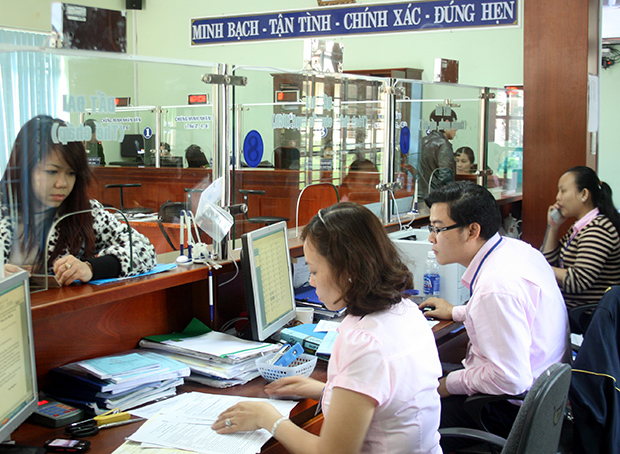VietNamNet Bridge - A survey by the United Nations Development Program (UNDP), released in a meeting between HCM City authorities on August 8, revealed that Saigon residents have to offer bribes for land ownership certificates.

Illustrative image
The UNDP study was entitled "Indicators of governance and public administration effectiveness at provincial level in Vietnam - Measurement from the people’s experience". From 2009-2015, nearly 75,000 people in 63 provinces and cities across the country were surveyed.
The numbers of survey participants in Hanoi and HCM City were three times higher than that of other provinces, accounting for about 10% of the people with permanent residence in the cities.
In every aspect of the survey, the number of participants depended on the level and nature. The participants were randomly selected, aged over 18.
According to the survey results, in the section "control of corruption in the public sector”, the additional spending (out of regulations) paid by parents for teachers and school managing board of public primary schools in HCM City in 2015 was nearly VND853,000/semester, compared to VND510,000/semester in 2011.
In Hanoi, the figures were VND630,000/semester in 2015 and VND824,000/semester in 2011.
According to the UNDP survey, in 2015 about 30% of respondents said they had to pay unofficial fee (not prescribed by the rules) for health workers at the district and municipal-level hospitals for better care.
This rate fell by half compared to 2011 (nearly 60%). The unofficial cost for medical services was approximately VND700,000/treatment time.
More than 28% of Saigonese who participated in the survey said they had to pay unofficial fees to get the certificate of land use rights. The average bribe was nearly VND14.5 million ($700).
Notably, according to the survey, the determination to fight corruption by both government and people tended to decline over time.
According to the respondents, the recruitment of civil servants was not based on their qualification but personal relationships. For five consecutive years, personal relationships were considered to be important or very important. Over 50% of the respondents said to get a job in state agencies, people had to pay a bribe.
In 2015, 37% of respondents said that provincial leaders had handled corruption cases in a serious way. This rate was lower than in previous years.
Meanwhile, people’s corruption tolerance tended to increase in 2015, with only about 3% of the people saying that they would denounce the behavior, a falloff of 7.5% compared to 2011.
The rate of the respondents who said that civil servants used public money for private purposes was also on the rise, with more than 25% in 2015, from over 21% in 2011.
Thu Ly